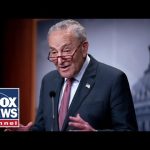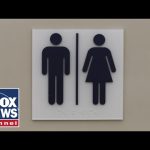The recent wave of protests targeting Tesla and its CEO, Elon Musk, has taken a troubling turn, sparking debates about the nature of peaceful demonstrations and the boundaries of lawful dissent. What began as opposition to Musk’s involvement in the Trump administration and his controversial Department of Government Efficiency (DOGE) has morphed into acts of vandalism, arson, and violence against Tesla properties. These incidents raise serious concerns about public safety and the erosion of respect for private property—a cornerstone of a stable society.
While organizers of the “Tesla Takedown” movement claim their protests are nonviolent, the reality on the ground paints a different picture. Tesla dealerships and charging stations across the country have been subjected to Molotov cocktail attacks, gunfire, and arson. In one shocking incident in Las Vegas, multiple Teslas were set ablaze, with “RESIST” spray-painted on the facility’s walls. Such actions are not expressions of free speech but criminal acts that threaten lives and livelihoods. Attorney General Pam Bondi has rightly labeled these attacks as “domestic terrorism,” underscoring the need for swift and decisive legal consequences for those involved.
The motivations behind these protests extend beyond dissatisfaction with Musk’s political role; they reflect a broader agenda to undermine American innovation and entrepreneurship. Tesla represents more than just an automaker—it symbolizes technological progress and economic opportunity. By targeting Tesla, protesters oppose Musk and attack the principles that drive American ingenuity. Calls by figures like Representative Jasmine Crockett to “take down” Musk only add fuel to the fire, creating an environment where lawlessness is tacitly encouraged under the guise of activism.
The consequences of such actions are far-reaching. Beyond the immediate property damage, these protests jeopardize public safety. Imagine a scenario where a protest escalates near a Tesla vehicle occupied by children or pets—such risks cannot be ignored. Moreover, these acts set a dangerous precedent where ideological disagreements justify destruction. If unchecked, this could lead to a society where mob rule replaces civil discourse, undermining the very freedoms protesters claim to defend.
As tensions mount, lawmakers like Representative Crockett must exercise caution in their rhetoric. Words have consequences, especially when spoken by elected officials. Calls for accountability must be paired with unequivocal condemnation of violence and vandalism. The conservative viewpoint emphasizes that while dissent is a vital part of democracy, it must be expressed within the bounds of law and respect for others’ rights. The rule of law is not optional—it is essential for preserving order and liberty.
In conclusion, the anti-Tesla protests highlight a growing divide in American society that demands healing through dialogue rather than destruction. Respect for property rights and adherence to legal norms are non-negotiable principles that safeguard individual freedoms and societal stability. As we approach the planned “Day of Action” on March 29, it is crucial for all parties involved to recommit to peaceful methods of protest and constructive engagement. Only then can we ensure that our nation remains a beacon of innovation and civility rather than descending into chaos.




